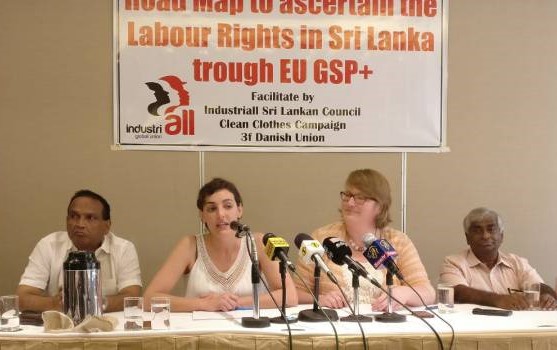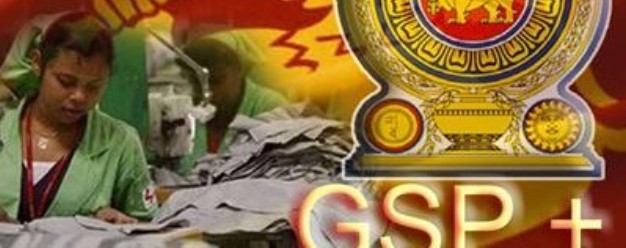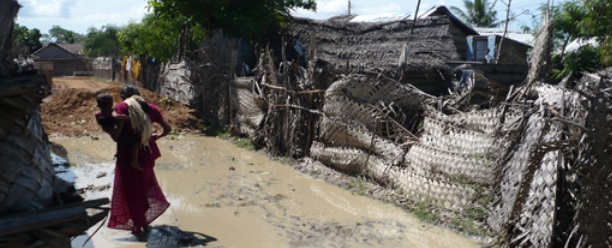A last chance to act: MEPs must say ‘no’ to restoring GSP+ to Sri Lanka
Earlier this month, the Sri Lanka Campaign addressed a joint letter to MEPs calling on them to reject the EU Commission’s proposal to restore ‘GSP+’ to Sri Lanka – the preferential trading scheme that was suspended in 2010 following serious human rights concerns.
Our message was clear: the government of Sri Lanka has not addressed a range of serious failures in its implementation of the core international inventions required for GSP+, such as the Convention Against Torture. Nor has it fulfilled a number of the 15 specific conditions which the EU previously laid down as necessary for the return of the scheme. MEPs should reject the proposal for its restoration and the government Sri Lanka should re-apply once meaningful progress has been delivered.
The deadline for action looms. For the proposal to be rejected, it will require a simple majority of MEPs to vote against it at the forthcoming plenary scheduled for 26-27th April. That vote has now been secured through the objection raised by one party group, the GUE. But obtaining the necessary numbers will require the remaining representatives of the trade committee, INTA, to make recommendations to their party group members to follow suit. The timing and rationale for any such recommendations now appear likely to rest upon the terms laid down by INTA committee MEPs in a letter sent to Prime Minister Ranil Wickremesinghe on 7th April.
In that letter, MEPs expressed concern about the slow pace of reform and stated clearly: “we expect the Government to table legislation to replace the Prevention of Terrorism Act and amend the CCPA [Code of Criminal Procedure Act], ensuring their full compliance with international standards, prior to the decision on GSP Plus foreseen for mid-May” [emphasis added]. Notwithstanding the narrowing of the basis for its decision to these two issues and the unjustified side-lining of other key conditions which the EU previously laid down (including, for example, the release of political prisoners), INTA committee members will soon need to make a decision on this issue – one which will be accountable, at the very least, to the minimal criteria which they have laid down in their letter.
It is looking extremely unlikely the government will be able to satisfy even these. A draft framework of the proposed Counter Terrorism Act designed to replace the PTA – recently leaked to the press, but not yet acknowledged by the government – has been resoundingly condemned by large sections of Sri Lankan civil society as being incompatible with core human rights conventions. A legal analysis released this week by National Foundation for Human Rights (a South African organisation) outlines a range of serious concerns with the draft which, the authors submit, “must be addressed if the Sri Lankan government is to adopt a legal framework for counter-terrorism that is compliant with international standards”.
Of particular concern, the report notes the “unreasonably wide” definition of ‘terrorism-related offences’ contained within the draft, which “gives rise to the risk of abuse of the powers [it confers]”. Provisions relating to remand custody, the authors say, “fail to meet international human rights standards, in breach of the ICCPR, and would possibly also result in an “an unacceptable risk of torture”. The range of powers it would permit the government of Sri Lanka – including the ability to arrest suspects; subject them to lengthy pre-charge detention; to seize and confiscate assets; to impose curfews and travel bans; and to proscribe organisations – constitute “potentially oppressive measures that interfere with fundamental rights.”
If, as anticipated, the government of Sri Lanka tables a variation of this draft legislation early next week, MEPs must pay close attention to the detail of these concerns and be prepared to respond decisively if they have not been addressed. It will be especially important that they do so given the minimal opportunities that Sri Lankan civil society has had, and will have, to scrutinize the contents of the draft ahead of a decision by MEPs – a disturbing dimension of recent developments which MEPs have themselves contributed to through the hasty timeframe imposed by their ultimatum.
As we have argued, the substance of that ultimatum amounts to a deeply unsatisfactory shifting of the goalposts by the EU. The restoration of GSP+ hinges on a broad range of conditions which the government of Sri Lanka has not (and will not) meet in time; and mere tabling of legislation to replace and amend the PTA and CCPA offers no guarantees that they will be compliant with international human rights standards once enacted, or that they will be enacted at all. Nevertheless, MEPs on the INTA Committee have pledged in the clearest terms that they will say no to GSP+ on this narrower basis. If the government fails to table relevant legislation next week which meets international human rights standards, those MEPs must honor their word and recommend to their members to vote against restoring GSP+. Failure to do so poses a serious risk of the EU giving a green light to preserving the architecture of state repression in Sri Lanka. Above all, it would represent a huge missed opportunity to dismantle it by retaining the incentive of trade.




